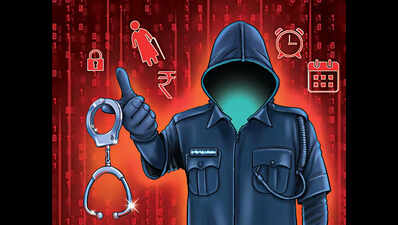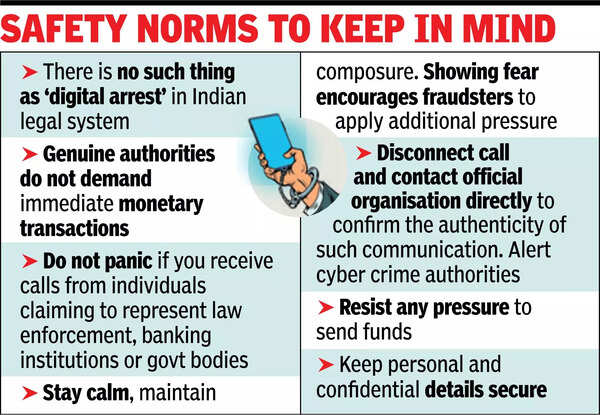ARTICLE AD BOX

KOLKATA: An increasing number of Kolkatans are seeking out professional mental health support over ways to deal with the fallout of digital arrest. This includes both people who have been digitally defrauded, as also those who feel they are especially at risk, typically - but not restricted to - older individuals, who are not very technologically adept.

The most common psychological issues being reported are anxiety, panic attacks, diminished self-confidence and a deep sense of shame.
Some weeks ago, a middle-aged man, whose son lives in Mumbai, received a call from someone who claimed to be from the “Mumbai Police”, who told him that his son had been detained because of “inappropriate behaviour” with a woman. The caller offered to resolve the matter discreetly if a certain amount of money was paid.The worried father managed to scribble a note, asking his wife to call their son, but she was unsuccessful in getting through. The father, anxious to save the family’s reputation, transferred Rs 5 lakh to the fraudsters. It was only after two hours, when his son called them back to explain that he could not take their calls because he was in a work meeting, that he knew he was defrauded.“He experienced deep mental trauma over a sense of guilt and shame because he was constantly thinking how easily he was fooled, despite being an educated person,” said psychiatrist Jay Ranjan Ram of Apollo Multispecialty Hospital, whom he consulted after some days.
Ram said his patient had to have several counselling sessions and was prescribed medication.Even cases where scamsters were unsuccessful leave their ‘almost victims’ scarred.Sanjay Garg, consultant, mental health and behavioural sciences at Fortis Anandapur, said this woman felt an acute sense of anxiety when she went to office the next day. “She told me she could not shake off the feeling that her colleagues were discussing her, or were questioning her integrity,” Garg said. “This caused a full-blown panic attack, hospitalisation and subsequent referral to a psychiatrist. Her condition was diagnosed as psychosis, characterized by paranoia, stress and anxiety, depression, aggression towards family members, delusions and disrupted thoughts and perceptions that others intended to harm her,”She is under treatment and is getting better, but she continues to experience anxiety, panic attacks and diminished self-confidence.Another person who was not defrauded, but is still mentally scarred by his experience, is a retired senior govt official from south Kolkata, who received calls from ‘government agency’ representatives, claiming his accounts were involved in hawala transactions. They threatened to arrest him unless he transferred Rs 30 lakh immediately. A visiting friend’s timely intervention prevented the fraud.“This gentleman was scared of social ostracization and loss of face if people came to know that his accounts were used for hawala transactions, even though the accounts weren’t,” said psychiatrist Sabyasachi Mitra of Woodlands Hospital.
“His depression relapsed. Even as he is now doing better with counselling and medication, he is yet to come out of the trauma.”Geriatric physician Dhires Kumar Chowdhury, working with Bancnbo, a south Kolkata-based organisation that cares for the elderly, said their members constantly worry about being victims of cyber fraud.“In addition to the insecurity of living alone, with most of their children working in other cities or countries, cybercrime such as digital arrest have instilled another fear in their lives. There have been cases where a couple of our members almost felt prey to such fraud. They live in constant fear,” Chowdhury said.



.png)
.png)
.png)
















 8 hours ago
5
8 hours ago
5
![[Watch]: Stephen Curry Delights Fans at Summer League With Precious Father-Son Moment at Chase Center](https://static.toiimg.com/thumb/msid-122280642,width-1070,height-580,imgsize-92776,resizemode-75,overlay-toi_sw,pt-32,y_pad-40/photo.jpg)








 English (US) ·
English (US) ·